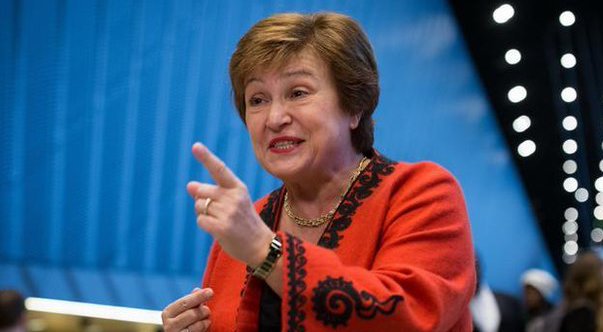Business
IMF retains 3.4% growth prospect for Nigeria amid soaring inflation

The International Monetary Fund (IMF) retained the 3.4 percent growth projection for the Nigerian economy this year despite soaring inflation, and the country’s inability to cash in on the rising price of crude oil.
Ripples Nigeria had reported that the IMF planned to review global economic growth forecast due to the negative impact of the ongoing war between Russia and Ukraine, and historical inflation rocking countries.
In its World Economic Outlook (WEO) for July 2022 titled: “Gloomy and More Uncertain,” the Bretton Wood institution maintained that Nigeria’s economic growth was still projected at 3.4 percent for 2022.
Recall that Nigeria’s inflation hit 18.6 percent in June, reflecting an increase in cost of living in the country, couple with crude oil price rising above $100 per barrel.
Despite the impact on countries, the IMF believes the economy would grow at the same pace despite inflation and an increased interest rate of 14 percent expected to cut consumer spending.
IMF also retained its rates for nations in Middle East, Central Asia and sub-Saharan Africa.
It said: “A tentative recovery in 2021 has been followed by increasingly gloomy developments in 2022 as risks began to materialize. Global output contracted in the second quarter of this year, owing to downturns in China and Russia, while US consumer spending undershot expectations.
READ ALSO: IMF warns Nigeria’s fiscal woes to get worst
“Several shocks have hit a world economy already weakened by the pandemic: higher-than-expected inflation worldwide––especially in the United States and major European economies––triggering tighter financial conditions; a worse-than-anticipated slowdown in China, reflecting COVID- 19 outbreaks and lockdowns; and further negative spillovers from the war in Ukraine.
“The baseline forecast is for growth to slow from 6.1 percent last year to 3.2 percent in 2022, 0.4 percentage points lower than in the April 2022 World Economic Outlook.
“Lower growth earlier this year, reduced household purchasing power, and tighter monetary policy drove a downward revision of 1.4 percentage points in the United States. In China, further lockdowns and the deepening real estate crisis have led growth to be revised down by 1.1 percentage points, with major global spillovers.
“And in Europe, significant downgrades reflect spillovers from the war in Ukraine and tighter monetary policy.
“Global inflation has been revised up, due to food and energy prices as well as lingering supply-demand imbalances and is anticipated to reach 6.6 percent in advanced economies and 9.5 percent in emerging market and developing economies this year—upward revisions of 0.9 and 0.8 percentage point, respectively. In 2023, disinflationary monetary policy is expected to bite, with global output growing by just 2.9 percent.”
Join the conversation
Support Ripples Nigeria, hold up solutions journalism
Balanced, fearless journalism driven by data comes at huge financial costs.
As a media platform, we hold leadership accountable and will not trade the right to press freedom and free speech for a piece of cake.
If you like what we do, and are ready to uphold solutions journalism, kindly donate to the Ripples Nigeria cause.
Your support would help to ensure that citizens and institutions continue to have free access to credible and reliable information for societal development.
























